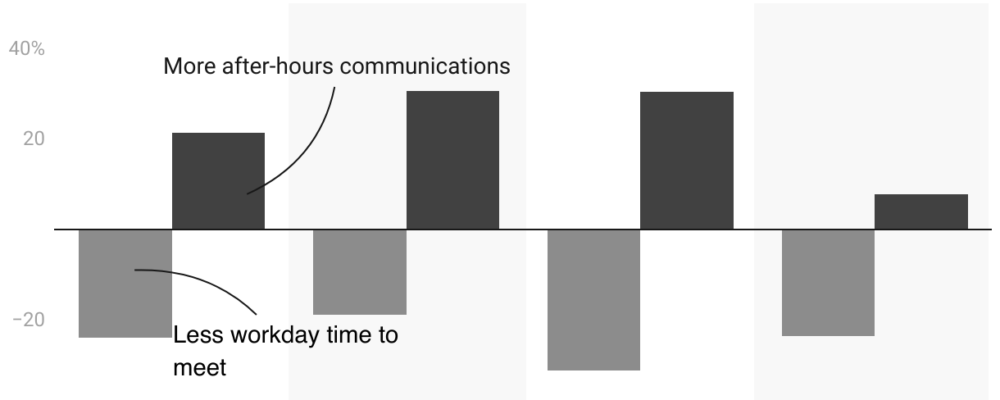Editor’s note: The following is an excerpt from chapter one of Fintech, Small Business & the American Dream, written by Karen G. Mills, senior fellow at Harvard Business School. The second edition was published in 2024 by Palgrave Macmillan.
The cycle of fintech innovation in small business lending is not yet complete, but we can already see its promise. As technology opened the doors to vast troves of data, opportunities emerged to create new insights on a small businesses health and prospects. These inputs have the potential to resolve two defining issues that have faced lenders and borrowers in the sector: heterogeneity—the fact that all small businesses are different, making it difficult to extrapolate from one example to the next—and information opacity, the fact that it is hard to know what is really going on inside a small business.
“But what if technology had the power to make a small business owner significantly wiser about their cash flow, and a lender wiser as well?”
From a lender’s point of view, the smaller the business, the more difficult it is to know if the business is actually profitable and what its prospects might be. Many small business owners do not have a great sense of their cash flow, the sales they might make, when customers will pay, or what cash needs they could have based on the season or a new contract. Small businesses have low cash buffers, and a miscalculation, late payment, or even fast growth could cause a life-threatening cash crunch.
But what if technology had the power to make a small business owner significantly wiser about their cash flow, and a lender wiser as well? What if new loan products and services made it easier to create what one investor calls a “truth file”—a set of information that could quickly and accurately predict the creditworthiness of a small business, much like a consumer’s personal credit score helps banks predict creditworthiness for personal loans, credit cards, and mortgages? What if a small business owner had a dashboard of their business activities, including cash projections and insights on sales and cost trends that helped them weave an end-to-end picture of their business’s financial health?
This future is appealing because it responds to the fundamental need of small business owners to be able to see and more clearly interpret the information that already exists, helping them navigate the uncertain world of their businesses on their own terms and plan accordingly. And it provides an opportunity for lenders to better understand the creditworthiness of their potential customers and provide lower lending costs as a result.
But what if there was more?
What if this dashboard was part of a portal from which the business owner could operate all their financial activities? What if this intelligent platform knew when the business might need credit and could offer relevant options which were prequalified? And better yet, what if the platform came with a digital small business assistant who knew all about the business, including the goals and preferences of the owner. What if this bot could respond to requests in plain English to perform daily tasks and improve sales and marketing. Marshaling the predictive power of artificial intelligence and machine learning amassed from data on thousands of business owners in similar industries, what if this bot could help a business owner head off perilous trends and chart a plan for success?
We call this future state “Small Business Utopia.”
It may be that this name overpromises the outcome. Small businesses are perhaps too varied to be predictable, and entrepreneurs run their businesses with so much ingenuity and peculiarity that their insights cannot be replaced or augmented by artificial intelligence. It could be that small business owners are too set in their ways and will resist the new technology driven solutions. Yet, evidence suggests the opposite. If new intelligence is developed that will help them succeed, small businesses will find a way to adopt it. Small businesses are hungry for new solutions. They responded so positively to the early fintechs’ quick turnaround times on loans and the ease of online applications that they spurred traditional lenders to action. The next set of advances are proving to be even more accessible. Platforms are built in the cloud and come ready to help a business owner do everything from paying their bills to building their website. AI-powered intelligence can engage in a comfortable format and quickly provide valuable assistance. And credit options are being embedded in the workflow of their existing systems and are tailored to the needs of the business.
“Many of these advances are not fully available, but the path to their arrival has been set.”
Many of these advances are not fully available, but the path to their arrival has been set. In this book, we trace the progress of the fintech innovation cycle and explore what will be next and who will provide it. We build these predictions for the future on a fundamental foundation of elements we can see today: the needs of small businesses as they access the capital they require, the challenges traditional lending has faced in meeting these needs, and the opportunities that technology is providing for new solutions.
Excerpted from Karen G. Mills, Fintech, Small Business & the American Dream: How Technology is Transforming Lending and Shaping a New Era of Small Business Opportunity, Second Edition, published 2024 by Palgrave Macmillan. Copyright (c) 2024 by Palgrave Macmillan, reproduced with permission of SNCSC. All rights reserved.
You Might Also Like:
Feedback or ideas to share? Email the Working Knowledge team at hbswk@hbs.edu.
Image: Getty Images for Unsplash
“Harvard Business School is the graduate business school of Harvard University, a private research university in Boston, Massachusetts. It is consistently ranked among the top business schools in the world and offers a large full-time MBA program, management-related doctoral programs, and executive education programs.”
Please visit the firm link to site




